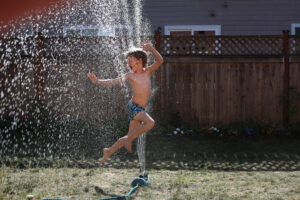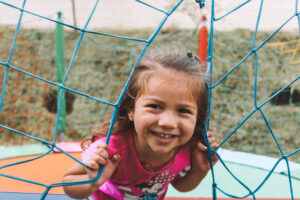The concept of giving more autonomy to young children in their day to day lives, or raising free range kids, is becoming more and more popular. Some parents believe that children gain more confidence with a more hands off parenting approach. On the other hand, higher involvement and constant supervision by parents continues to hold its many merits. The choice between close parenting and raising free range kids is a complicated choice, especially for newer parents. We can show you what you need to know as you shape your own parenting style.
Pros of Free Range Parenting
One of the biggest arguments in favor of this type of parenting is that it fosters independence, self-reliance and a sense of responsibility among children, from a very early age. The term ‘free-range parenting’ itself came from the incident when Lenore Skenazy famously let her 9 year old son find his way home on his own. Parents who follow this form of parenting are convinced that allowing more freedom to children has two sided benefits – one it allows children more autonomy and secondly it allows parents to get rid of the ever rising irrational fear ideologies about the risks that children may face.

Another big argument for this type of parenting comes from understanding the importance of unstructured and outdoor play. When children are intermingling amongst themselves, lack of supervision by parents not only allows them to fully experience their physical independence but they also foster more real and genuine friendships with their peers. Likewise, in case of a minor injury such as bumping into another child or falling off while running means that in the absence of a parent to run to, the children learn to overcome these inconveniences and grow to be more resilient and physically stronger.
It is notable that free-range parenting is not a free pass for children. There is still judicial supervision by the parents and there is also active guidance from the parents. However, with the general day to day activities, children are encouraged to make their own decisions and also seek out assistance from parents if they feel the need. Many experts on parenthood are of the opinion that ‘permissive parenting’ leads to dependency and indecisiveness. This means that if a child is brought up with a culture of having to ask for permission or assistance for every small task they carry out in a day, there is a real risk of them facing difficulties later in life when they are on the verge of adulthood and need to stand up for themselves.

Cons of Free Range Parenting
For starters, different states in the US have different laws that are especially relevant when it comes to leaving a child unattended. An example is leaving a child home alone without supervision, or sometimes called a latchkey kid. Therefore those parents who are inclined towards allowing more autonomy to their kids need to read up on the laws of the state they live in.
Another major factor that throws the benefits of free-range parenting under shade is the security risks as well as physical threats. Just as was mentioned above that under free-range parenting children learn to overcome small wounds and bruises while outdoor play, most parents following stricter and closer observation do so because they fear major injuries. Similarly, the modern day media news stories about kidnappings and other crimes have also contributed to the criticism of free-range parenting. It can be argued that this matter is subjective and perhaps can better be decided after considering the ground realities of the location where the children live and go out to play. Nevertheless, security risks continue to pose a major challenge for parents.
Some advocates against giving children too much freedom also argue that without supervision and parents making decisions for their children, there is a chance that the child may feel abandoned instead of empowered. There are numerous studies and notions whereby children of both working parents have grown up to feel less loved and somehow less prioritized. Therefore, even if the parents are present for the child’s bringing up, not lending a helping hand or partaking in their life decisions may end up causing more harm to the child’s confidence than good.
Free Range and Homeschooling
 To Raise Free-range Kids or Not?
To Raise Free-range Kids or Not?
The ultimate answer to this question depends not only on the laws of different states but also in the overall environment of the child. In a loving and caring home, free-range parenting might indeed lead to the results of self-reliance and self-assurance, while in a difficult household children might end up feeling abandoned and unloved. At this stage it is impossible to pick one type of parenting over the other.
Suffice it is to say that there are benefits and risks to both free-range parenting and close guarded parenting, and it is up to the parents to make this decision at least if they want to risk delving into the newly popular type of parenting or stick to the modes that they were themselves raised on. or wit


 To Raise Free-range Kids or Not?
To Raise Free-range Kids or Not?